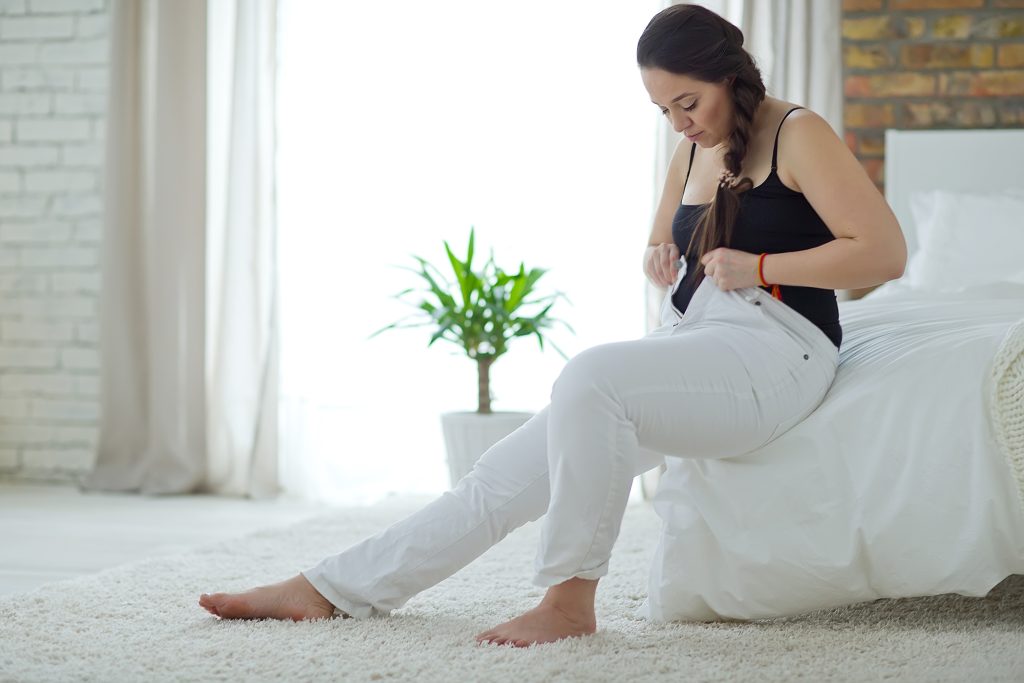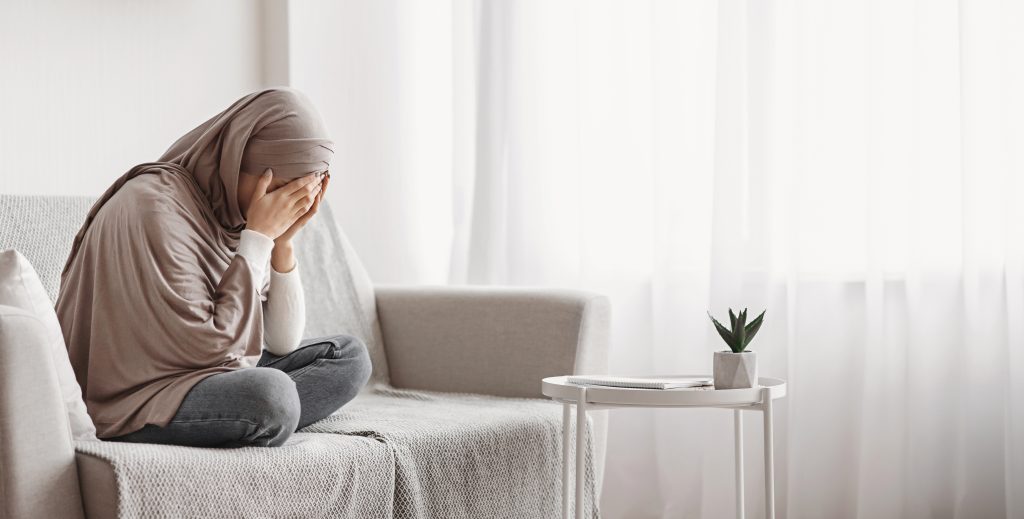A chat with a pharmacist on the role of contraceptives and gender perspectives
By Siti Salihah

A conversation about contraception is shaped by cultural beliefs, religion, and gender, but how much do we really know about the choices available—and who should be making them?
In this chat with pharmacist Sofiah Junaidi, who has 6 years of experience, particularly as a community pharmacist where she works closely with patients and gained firsthand insight into their contraceptive concerns, we explore available options, societal pressures, and the roles both partners play. From cultural influences to the future of male contraceptives, we take an inside look at how attitudes are shifting—and what still needs to change.
1Twenty80: Can you give us a brief overview of the most common contraceptive options for men and women today?
Ms. Sofiah Junaidi:
Women: The most common contraceptive methods for women include oral contraceptives (in tablet form), implants, patches, and the intrauterine contraceptive device (IUCD). Oral contraceptives are the most widely used, typically taken in 21-day or 28-day cycles. To determine the most suitable method, it’s best to consult a pharmacist.
Men: For men, condoms are the most common and readily available contraceptive. They are easy to use and widely accessible.

1Twenty80: As a pharmacist, what are the most common concerns patients have about contraceptives?
Ms. Sofiah:
Women: The most common concerns are weight gain, which can occur with oral contraceptives, implants, or patches. Another issue is irregular periods, which can be especially problematic for Muslims. Irregular bleeding makes it difficult to determine whether it’s menstruation, which affects their ability to pray. Since most people in Malaysia are Muslim, this side effect is generally undesirable.
Men: Malay men often feel ashamed to buy condoms, leading to reluctance in using them. In contrast, people from other ethnic groups tend to prefer men using condoms over women taking oral contraceptives. This is because condoms are external and don’t have internal effects, whereas oral contraceptives can carry more risks. As a result, many men opt for condoms instead.

1Twenty80: Are there any demographic trends, such as age or gender, in who seeks advice on contraception?
Ms. Sofiah: In terms of gender, it’s mostly women who seek contraceptives, as they are the ones who can get pregnant (laughs). Men, on the other hand, often don’t want to get involved and are generally reluctant to use condoms. As a result, women are left to take charge of contraception.
In Malaysia, awareness of contraception is still very low, and many couples prefer not to plan their families. Many either don’t use oral contraceptives or don’t use condoms.
As for age, there isn’t a specific trend, but once women have had several children and are older, doctors typically opt to insert an IUD during their visit to a government clinic. By that point, these women often no longer seek advice at community pharmacies.
1Twenty80: In your experience, how do cultural or religious beliefs influence contraceptive choices?
Ms. Sofiah: Cultural beliefs can have a big impact on contraceptive choices. Some ethnic groups may have a greater awareness and openness towards contraception, often due to early education about its importance. However, I don’t have enough experience to speak broadly on behalf of everyone.
In Islam, the predominant religion of the country, there are differing views. Some practitioners believe that family planning is not allowed because children are considered a blessing. However, I may not be well-versed enough to delve deeper into that.

1Twenty80: Hormonal contraceptives for women are widely used but often come with side effects. What are the most common concerns women share with you?
Ms. Sofiah: As pharmacists, we often notice that women, especially Malay women, tend to be very accommodating when it comes to side effects, particularly if it means avoiding pregnancy. For instance, even if weight gain is a side effect, they’re willing to endure it. Even if they have concerns, they often don’t speak up.
But the most common worries women have shared are about gaining weight, forgetting to take the pill, and emotional instability, which is another side effect. However, the biggest worry is usually missing a pill during the cycle.

1Twenty80: Why do you think women still take on most of the responsibility for contraception in relationships, even with the side effects they often experience?
Ms. Sofiah: I think women take on most of the responsibility for contraception due to a lack of awareness. There’s also a misunderstanding about contraception. I believe referring to a pharmacist or doctor at a hospital is a good step. In Malaysia, awareness is very low, and there’s little exposure to sex education. People treat sex education as a taboo, but it’s actually very important. Even after marriage, people are still uncomfortable talking about it, but it’s crucial for understanding the effects of contraception. Without proper family planning, it impacts women, children, and the whole family. So, I believe the key is education and awareness.
1Twenty80: Men’s contraceptive options are often limited to condoms or vasectomies. Why do you think there hasn’t been more focus on developing male-focused methods?
Ms. Sofiah: Actually, there have been efforts to develop more male-focused contraceptives. But ultimately the focus has largely been on women’s methods because they tend to be less complex. Female contraceptives work by altering hormone production to prevent pregnancy, whether it’s through oral pills, IUDs or patches. As for male contraceptives, condoms are the primary option that works.

1Twenty80: Do you believe societal attitudes towards masculinity impact how men perceive contraceptive responsibility?
Ms. Sofiah: Yes, societal attitudes towards masculinity definitely play a role in how men perceive contraceptive responsibility. Often, it’s a matter of awareness and education. Some men let their ego influence their decisions, like refusing to wear condoms because they believe it reduces pleasure. As a result, women are left to deal with the consequences, including unintended pregnancies. In my experience, this attitude seems more common among Malay men, while other ethnic groups tend to have a higher awareness and are more likely to use protection.

1Twenty80: If male oral contraceptives become widely available, what challenges do you foresee in encouraging their adoption?
Ms. Sofiah: The challenges with oral contraceptives are the same for both men and women, as they both require high compliance. Missing a dose can drastically reduce their effectiveness—just one missed pill can reduce a woman’s protection from 98% to 70%. Men would likely face the same issue; if they’re not compliant with condoms, they probably wouldn’t be with oral contraceptives either.
The key to changing this is raising awareness. People need to understand the impact of improper planning or lack of protection, whether it’s on the family, economy, or emotionally. So again, awareness and education are crucial.

1Twenty80: In your opinion, how will the development of male contraceptives shape the future of family planning?
Ms. Sofiah: Currently, methods like oral contraceptives, patches, and implants don’t guarantee 100% effectiveness—even condoms only offer 99%. So to me, if a male contraceptive could achieve 100% effectiveness, it would be a significant development.

1Twenty80: How can we encourage more balanced discussions and shared responsibility between partners?
Ms. Sofiah: Again, awareness and education are key. Without them, partners won’t even discuss contraception, so shared responsibility can’t happen. Education starts at home, not just in institutions like schools or universities—everyone has a role in raising awareness.
As healthcare professionals, we also play a part. For instance, if a customer regularly buys emergency contraception, we’ll recommend switching to a more reliable method, like oral contraceptives. Emergency pills shouldn’t be used more than twice in a cycle, so we try to guide them towards longer-term options like IUDs, implants, or patches. However, these alternatives are only available in hospitals, and without proper awareness, people may not even know these options exist. Ultimately, the key is ensuring that education and awareness are accessible to everyone.

1Twenty80: What would you say to couples who are unsure about which contraceptive option is best for them?
Ms. Sofiah: When it comes to choosing the right contraceptive, we, as healthcare professionals, take several factors into account, especially for women. It’s important to consider their medical history: Do they have high blood pressure? When was their last pregnancy? What is their weight? Are their periods regular? Do they have conditions like PCOS or heart issues? These factors help guide the decision-making process. It’s not something couples should decide on their own; the healthcare professional will assess and recommend the best option based on these factors.
For example, some women may start with oral contraceptives, but if they struggle with compliance, like forgetting to take the pill, we explore other methods. Options like the IUD, which is inserted once every six months, or an implant may be better suited. There’s also the patch, but for some Muslim women, it presents a challenge. Since it’s applied to the skin, performing full ablution (a ritual washing) after intercourse can be difficult because the patch area isn’t washed, leading to some debate among Islamic scholars. If the patch is removed, the risk of pregnancy increases, which is why many Muslim women opt for the implant instead.
However, the implant can cause very irregular periods, which complicates things further. Muslim women, in particular, may struggle to determine if bleeding is menstrual or not. This can interfere with their ability to perform the necessary ablution before prayers, leading to situations where some women might skip prayers because they can’t properly cleanse themselves. It can be quite inconvenient and challenging for them.
Conclusively, it’s best for couples to consult with a doctor or pharmacist for proper planning.











